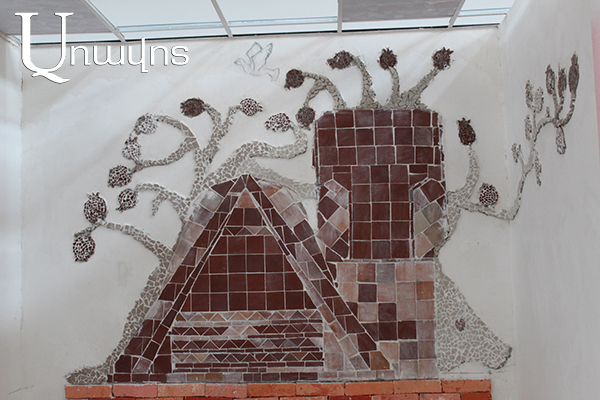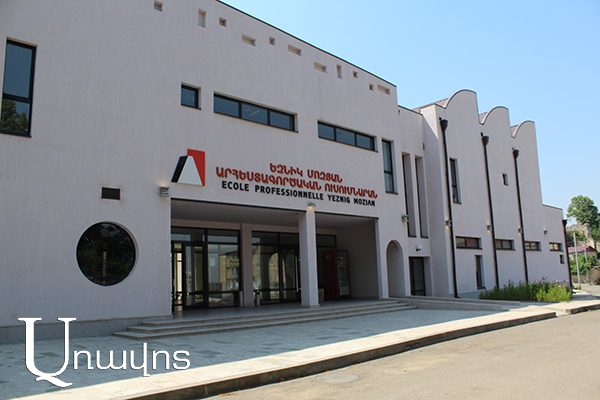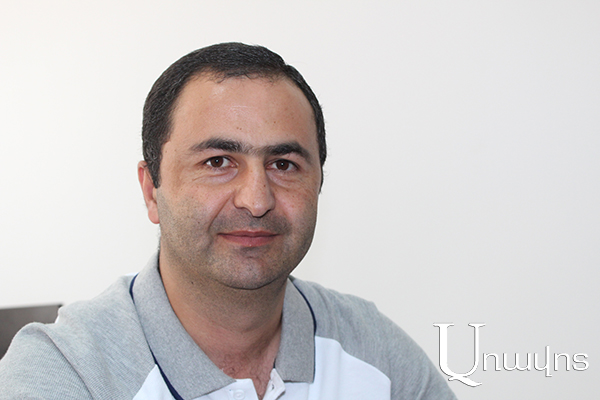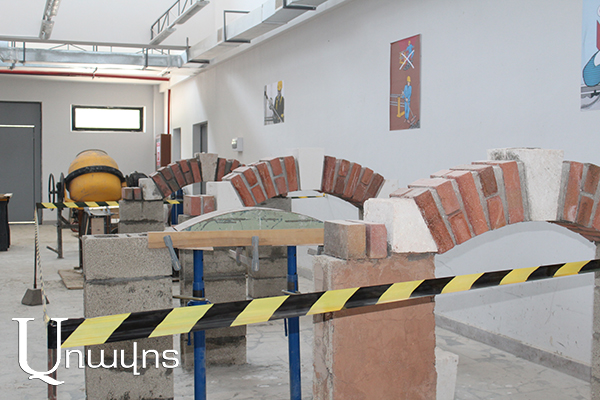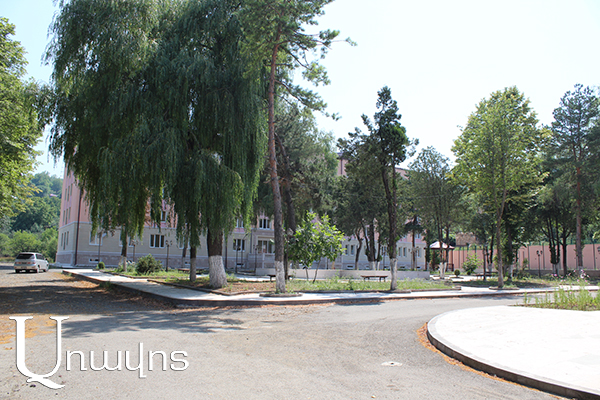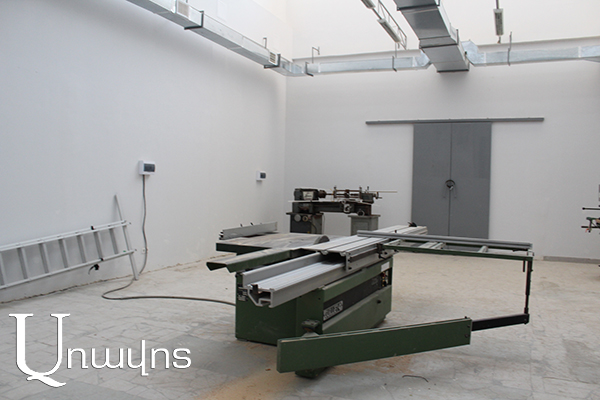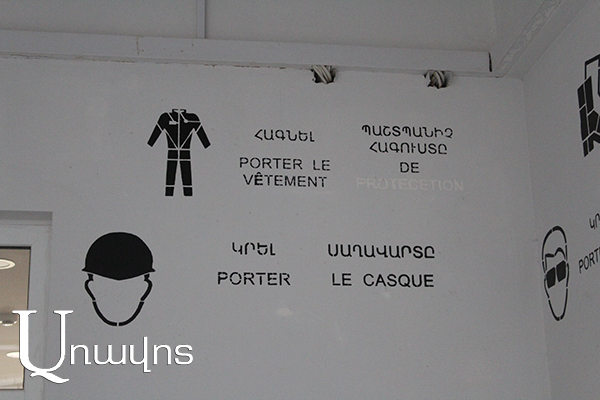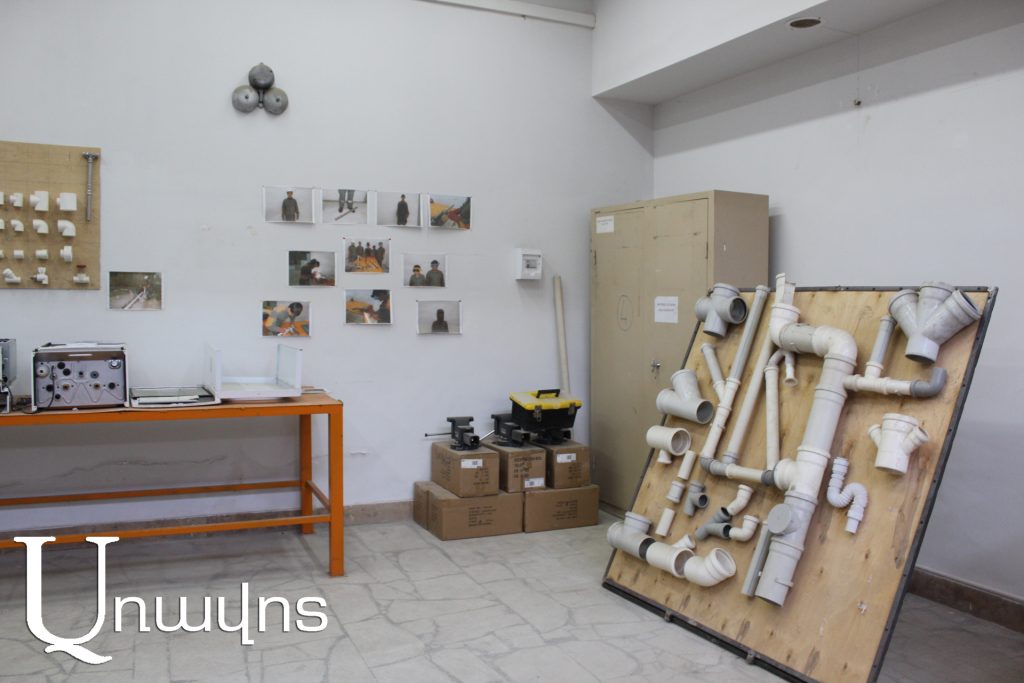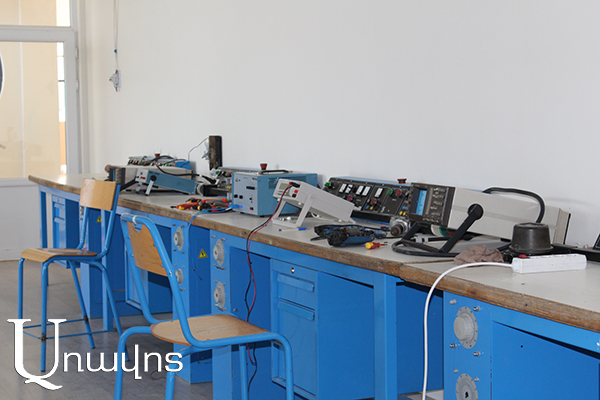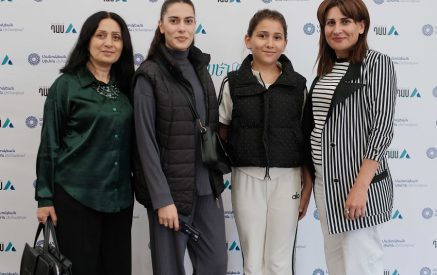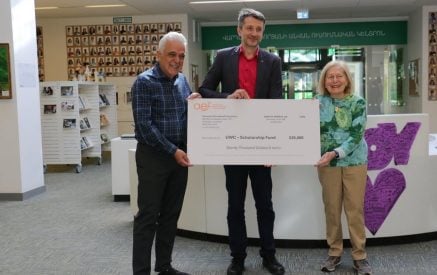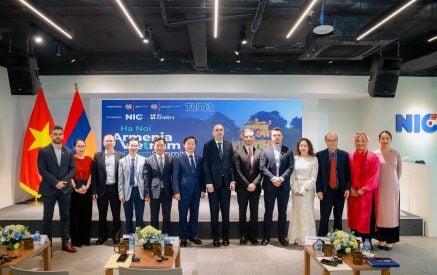This September the Vocational School after Yeznig Mozian in Shushi will welcome the 3rd educational year in Artsakh. The school has opened in 2015, it can receive from 450-500 pupils. The school aims to raise the vocational education not only of the youth but the grown-ups in Armenia and Artsakh as well.
The vocational school has both classrooms where the pupils study the theoretical part and workshops where they can put the theoretical knowledge into practice. Besides, there is free of charge canteen and the pupils can live in the newly built dormitory of the vocational school, the school also provides its pupils with clothes.
The executive director of Yeznig Mozian vocational school foundation of Shushi, Vaspurak Karapetyan noted that the idea of creating such educational institution was in place still in 2009, but they started to build it in 2012: “In 2012 a will left by French-Armenian Yeznig Mozian was in place who was a tailor by profession and knew the value of the craft very well and he always repeated that youth knowing craft will never stay homeless. He had a dream that in Armenia or Karabakh such center was opened where the youth could study craft, had a job and did not leave the country. The will was handed to the Armenian Foundation of France, a professional committee was formed, people were chosen who would become responsible and they started to take practical steps.”
Vaspurak Karapetyan considers the school as a unique one within the whole region not from the perspective of furnishing, but the educational system: “It is characterized by 3 main components. They call it apprenticeship education system. This system exists since long ago which has been taught from generation to generation, the craft was transmitted. This is also called a sequenced education, forasmuch as there are 2 education spots succeeding one another. We have a school, we also have companies, and their role is bigger than the school’s, inasmuch as they study at school for a week, 2 weeks in companies. Since they have to learn craft, the main stress is put on the practical part. The other one is the dual education system, that is, always a possibility exists to replenish one by the other.”
In 2017 the 1st stream has graduated from Yeznig Mozian vocational school. As stated by Vaspurak Karapetyan, the school has 87 pupils, however, they have expelled about 15 pupils during the 1st year, and similar cases have not occurred during the 2nd year. Few days have remained until the end of the admission for the 3rd educational year of the school now: “The admission of the 2nd year was unique, forasmuch as firstly the question of the image is in place, and then people get interested, they see what way the education is conducted. And assuredly, they have learned from the pupils of one year higher that they should come and study and even children studying very well came. The first year a lot of people came imagining as if they should come and get registered and afterwards they should come, take the paper and go. That approach was rejected and we will not betray our principles, it should be a good institution serving as an example.”
Vaspurak Karapetyan mentioned that the selection of the masters for production trainings was very disputable from the beginning: “A part of our founders was inclined towards taking the former masters – to make already professional ones a pedagogue, the other part insisted on taking people having higher education in pedagogy and make them masters. Of course both were difficult, because of that we started to take interviews and came to the conclusion that it was better to take young people with higher education in technology who have more flexible mindset, are progressive, know how to use computer and internet, to send them to France, train masters rather than taking the former masters, among whom assuredly there are very good ones, similarly knowledgeable, advanced, but they are few mainly. They mostly are stereotyped and say – it is like this and that is it, but we do not need it. There are people who do their work blindly, but when you ask them why they cannot answer and this did not attract the French side. This is why we selected local young people with higher education, we put a stress on them being locals, they completed training courses at a school in France and worked in construction companies.”
Mr. Karapetyan noted that the cooperation is always in place with the French side, in particular, the French specialists have given 3 master class lessons at school. And in spring of this year they have visited from Le CCCA BTP de France (Comité de concertation et de coordination de l’apprentissage du bâtiment et des travaux publics) and have given qualifications for 3 professions by which they have confirmed that they correspond to their standards and have given a medal: “By that medal they confirmed that we are already a member of their family. Besides, they gave their keys to us via which we will be able to use their internet resource. Here this cooperation is always in place and the geography enlarges gradually. And besides using the human resources, we use also the huge amount of material resource, which they always give us as a present.”
Yeznig Mozian vocational school is attended not solely by the people living in Artsakh, but also Armenia: “Gradually the status of Shushi raises. It is a city in ruins after the war, some bourgeois approaches exist as well, which spread misinformation, and some from Stepanakert even say that Shushi is not a place to live in, but it is not true: it is a wonderful city and it gradually prospers, it will have a great future and first and foremost, it is a growing city.”
The selection of the location has not been a coincidence as well: “At the beginning we were to select whether in Artsakh or Armenia. We chose Artsakh, inasmuch as it is a country seen a war, we have received a horrific heritage from the Soviet period: the buildings have a very poor quality and Shushi is in ruins and it has been famous for being the city of the masters. In every step you could meet a workshop here. It also has a symbolic character and solves strategic issues. This educational institution made life in Shushi hugely active, due to this me and 2 of our employees bought houses in Shushi, one of the employees wants to buy a house as well. Besides, now we have 41 employees, most of them from Shushi, job issues are solved and we build Shushi right in place. We have completely upgraded one apartment in Shushi, now we close the balcony of the new apartment making it a room. We do thousands of works that the utility companies do not manage to do.”
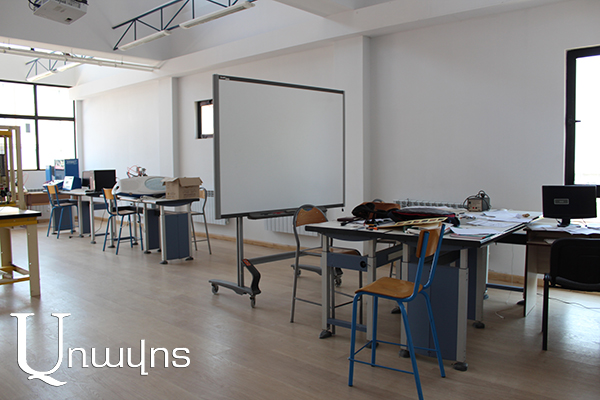
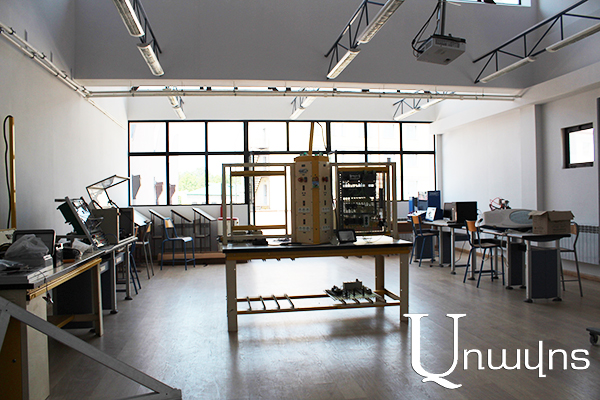
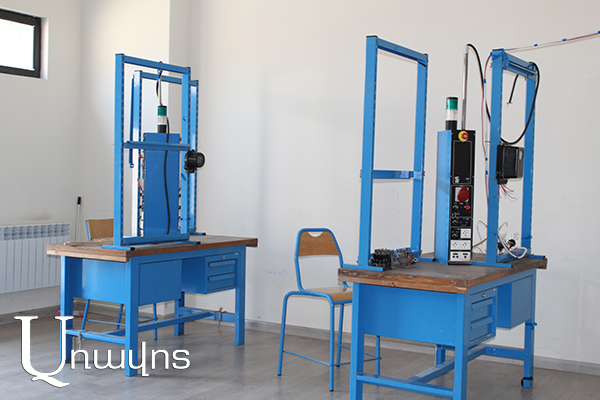
Ami CHICHAKYAN




















































